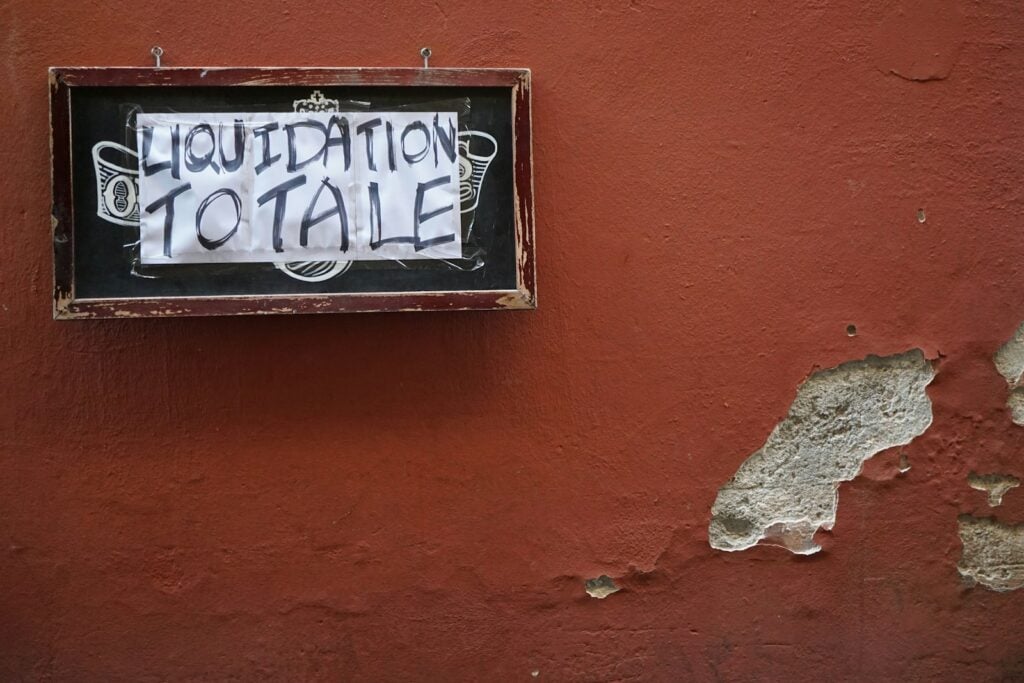When a debtor organises his insolvency in order to escape his obligations, the creditor may feel powerless. However, French law offers specific and powerful protection against such fraudulent manoeuvres: the action paulienne. Often overlooked by non-lawyers, it can render acts of wilful impoverishment ineffective. This article explains how this protective mechanism works, the conditions under which it can be applied and its practical effects. It is a fundamental guarantee that has its place in the arsenal of creditor guarantees in the law of obligationsThe complexity of these issues calls for a meticulous approach.
Understanding the specific nature of Pauline action
The action paulienne, provided for in article 1341-2 of the Civil Code, is a remedy that allows a creditor to apply to the courts to have acts performed by his debtor in fraud of his rights declared unenforceable against him. In practical terms, if your debtor sells a property for a derisory price or makes a large donation so that he cannot pay you, this action allows you to ignore this act and have the property seized as if it were still in his estate. It is essential to distinguish it from other protection mechanisms. Unlike theoblique action to sanction inaction of the debtor, the action paulienne targets his active dishonesty. Its effect is personal to the creditor who brings it; it benefits neither the debtor nor the other creditors.
The role of the action paulienne in the protection of the general pledge
For all creditors, their debtor's assets constitute their "general pledge". These are all the assets that the creditor can sue to obtain payment of the debt. A debtor who organises his own impoverishment voluntarily reduces this pledge. The main function of the paulian action is therefore to fictitiously reconstitute this general pledge. By rendering the act of impoverishment unenforceable against the acting creditor, the law allows him to act as if the act had never existed against him. The property fraudulently removed from the patrimony is then considered to have remained there, but only to enable the diligent creditor to seize it.
Compatibility with collective proceedings
One of the great strengths of the action paulienne is its robustness, even when the debtor is the subject of collective proceedings (safeguard, reorganisation or judicial liquidation). An individual creditor may bring this action even after the debtor has been declared bankrupt, provided that he has declared his claim. The resulting unenforceability will benefit the creditor alone. This possibility coexists with the right of the insolvency representative or liquidator to bring an action in the name and in the interests of all creditors. In this case, the property is reintegrated into the debtor's assets for the benefit of all. The survival of the individual action in collective proceedings makes it a strategic tool for creditors who are aware of fraud organised by their debtor before his official default.
The conditions for exercising the Paulian action
The success of a paul action depends on several cumulative conditions being met. The absence of any one of them is sufficient to frustrate the claim. The burden of proving these elements lies with the creditor, which makes the preparation of the case absolutely crucial.
The claimant's claim
In order to take action, you must prove that a claim exists in principle at the time of the fraudulent act. This is the condition of anteriority. It is not necessary for your claim to already be liquid (precisely quantified) or due (matured) on the date of the disputed act. It is sufficient for the right to payment to have arisen. For example, a claim for damages, even if it is not quantified by a judge until much later, is considered to have arisen on the date of the harmful event. Case law admits one notable exception to this principle of anteriority: the action remains possible if the debtor has organised his fraud in advance, with the aim of avoiding future but foreseeable debts. However, the claim must be certain on the day the court rules.
Fraudulent impoverishment of the debtor
The action relates to any legal act by which the debtor reduces the value of his assets. This may involve obvious acts such as a gift, a sale at a deliberately undervalued price, or a remission of debt. More subtle acts are also involved, such as a very long-term lease granted for a derisory rent, which depreciates the value of the property, or the provision of security to guarantee the debt of a third party. The consequence of the act must be to cause or aggravate the debtor's insolvency. In other words, after this act, the debtor's remaining assets are no longer sufficient to pay off the creditor. Proof of insolvency is therefore a key element, except in certain specific cases, such as where the creditor has a specific right (such as a mortgage) over the property that was the subject of the fraudulent act.
Fraud by the debtor (consilium fraudis)
The concept of fraud is broadly understood by the courts. It is not necessary to prove intent to harm or a Machiavellian plan to damage the creditor. Pauline fraud is characterised by the debtor's mere knowledge of the damage he is causing. In other words, as soon as the debtor is aware that the act he is committing will render him insolvent (or aggravate his insolvency) and therefore prevent his creditor from being paid, the fraud condition is met. This knowledge can be proven by any means, and judges can deduce it from a number of clues, such as the haste to sell assets immediately after a formal notice or a summons to appear in court.
Complicity of the contracting third party
The fate of the action also depends on the nature of the act and the attitude of the third party who benefited from it. A fundamental distinction must be made:
- For a free deed (donation, debt forgiveness) : no proof of the third party's complicity is required. It does not matter whether the beneficiary of the gift acted in good or bad faith. The law considers that anyone who has received property without financial consideration must return it to enable the creditor to be paid.
- For a deed for valuable consideration (sale, exchange) : the creditor must prove the complicity of the third party. This means that the creditor must show that the third party had knowledge of the debtor's situation and the prejudice caused to the creditor. This "knowledge of the fraud" can be established if the third party could not have been unaware of the precarious situation of his co-contracting party (for example, in the case of the sale of property at a manifestly low price or between close relations).
If the property has been resold to a sub-purchaser, the latter will only be protected if he acquired the property for consideration and was acting in good faith, i.e. was completely unaware of the initial fraud.
The effects of a paulian action: the unenforceability of the deed
When the paulian action is successful, the sanction is not the nullity of the fraudulent act, but its non-opposability to the creditor who acted. This is a significant difference with important practical consequences.
The principle of individual non-enforceability
The act of impoverishment (the sale or gift) remains perfectly valid between the debtor and the third party. It is also enforceable against all other creditors who have not acted. On the other hand, for the creditor who wins the case, everything happens as if the deed had never taken place. He can therefore have the property seized in the hands of the third party as if it still belonged to the debtor. Non-opposability is limited to the amount of the claim. If the property is sold, the creditor will be paid out of the sale price, and any surplus will revert to the third party purchaser. This purely individual effect is the main feature of the paulian action and rewards the diligence of the creditor who has taken the initiative to defend his rights.
Relationships with other remedies and limitations
The unenforceability obtained by the action paulienne is a powerful weapon. It can neutralise fraud, but it does not solve everything. Once the deed has been declared unenforceable, the creditor still has to initiate seizure proceedings to effectively recover the debt. The paulian action is often the essential prerequisite for a compulsory enforcement measure. It is linked to the other legal remedies. The unenforceability obtained does not preclude recourse to other protective tools, such as compensation, delegation or direct actionif the conditions are met. As mentioned above, the effect of the action is tempered in the event of collective proceedings if it is brought by the liquidator, as it then benefits all the creditors and not just one.
The action paulienne is an essential legal tool for any creditor faced with a debtor seeking to evade its commitments. However, its implementation is complex, as it is based on strict conditions of proof and a detailed analysis of the facts. The complexity of the paulian action, which requires an in-depth analysis of the facts and the law, fully justifies the need for support from an expert. lawyer specialising in securities and guarantees to secure your rights and complete this technical procedure.
Sources
- Civil Code: articles 1341-2 (action paulienne)
- Civil Code: articles 2284 and 2285 (general lien)
- French Commercial Code: articles L622-21 et seq. (rules governing legal action in the event of collective proceedings)




